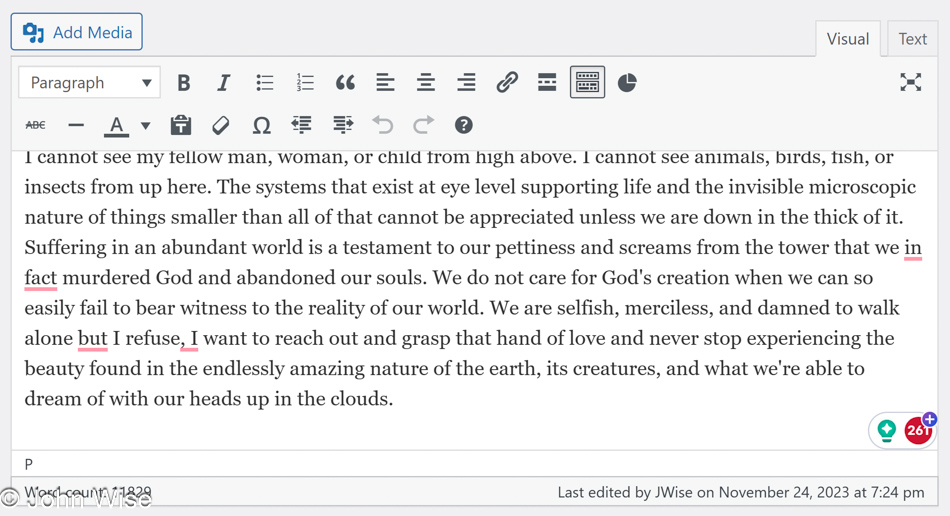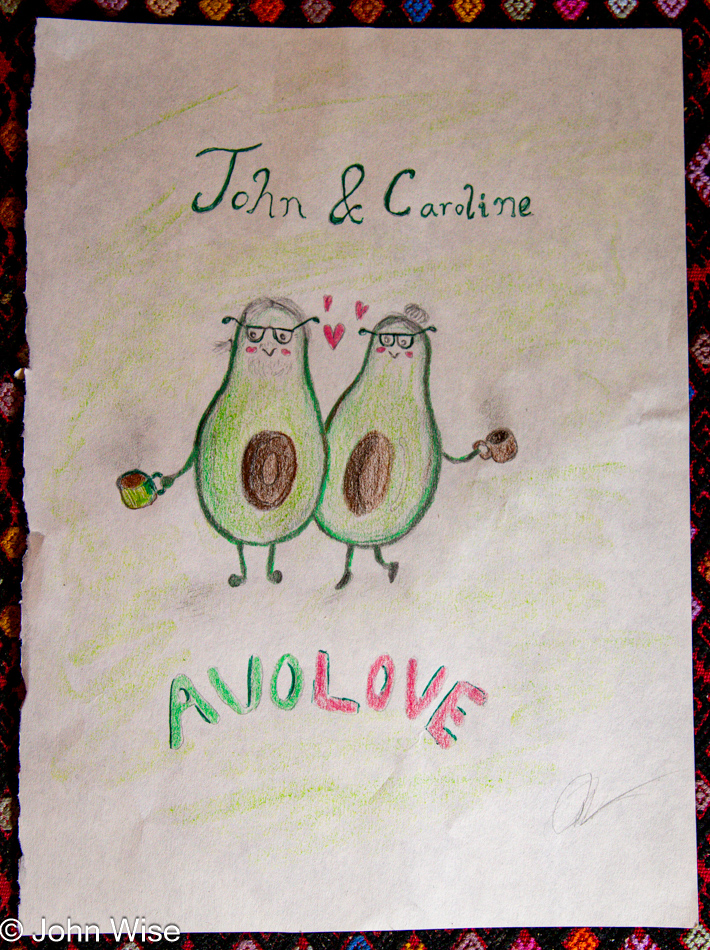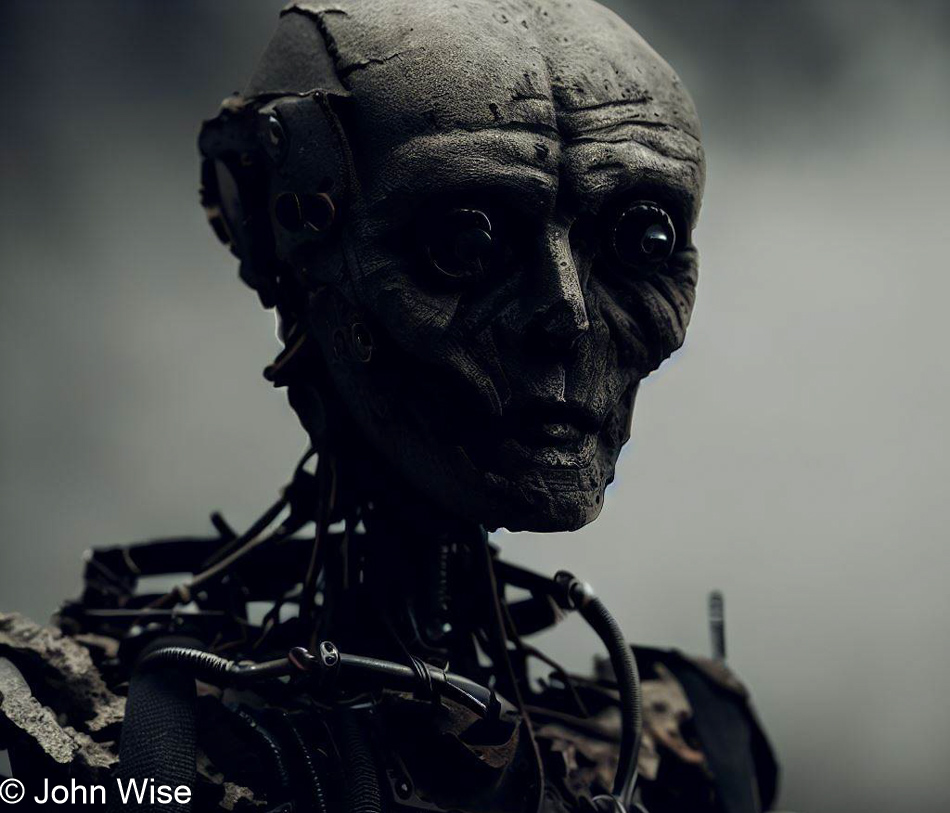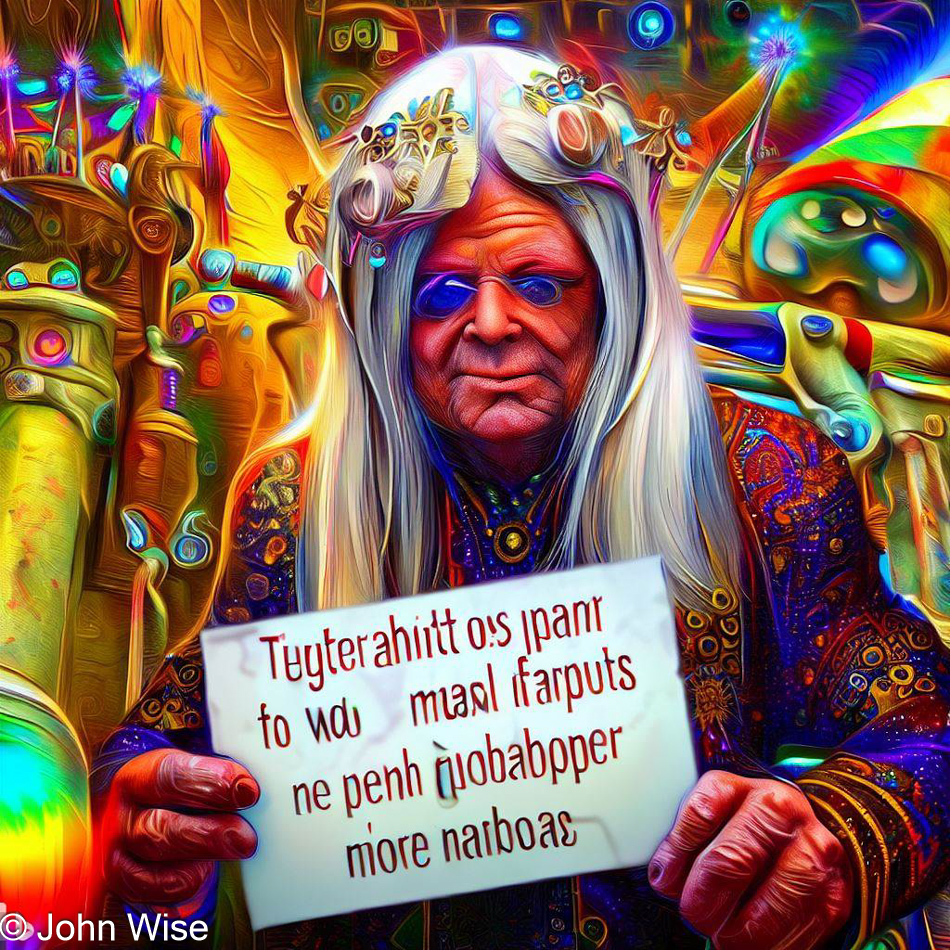
There really is little planning that can be applied to the future when it comes to grown people. There may be a desire to enhance or modify things, but the ability to roll out a new, fully formed version of a person, well, that’s not very likely; we must simply evolve and come into being. Just as there is the intention to do things or go places, we can also lend influence to our future selves in much the same way as planning for our next vacation by sketching an outline of what our adventure might entail.
Consider my upcoming 60th birthday: described that way, it only implies I’m growing older, whereas if I say that I’m being upgraded to John 6.0, I need to give serious thought to what this new, improved version will include.
One might think that with the breadth of versions of the 5.0 series, I would have had time to consider what is up next for improvement, but in fact, I’ve been concerned with performing to the best of my ability as version 5.9 prior to it giving way to 6.0.
Trying to perceive one’s self at some random future date is simply impossible. Never have I been even a remotely mediocre predictor of who I’d become. As a matter of fact, I don’t really know how to explain who I am on a day-to-day basis, nor would I be well-equipped to explain who I’ve been. The only real constant throughout the majority of my adult life is that I’ve been deeply entangled with my wife and best friend, Caroline. We’ve done stuff, lots of different things, and not one of them rises to a level that would be note-worthy on an obituary. I’m not the inventor or creator of anything noteworthy, and then again, I don’t require accolades that would note the already lofty places I’ve encountered in my life as what ranks higher than others.
This is a bit of a dilemma, though, as when I was a child, I fancied ideas of becoming so many very different things, and right up through my 50s, there were potentials such as realizing my dream of creating a virtual reality environment. Well, I did just that from the time I was 51 to 54. As a kid, I dreamt of making movies, music, writing, being an artist, a photographer, and a traveler to exotic places. To one degree or another, I’ve done most of that, but now I want something for the next decade that stems from a mind having explored itself and the world around it for the previous 60 years. This idea of being so realized that nothing of great invention remains is a thought I don’t want to entertain, but what would punctuate my life so far seems elusive.
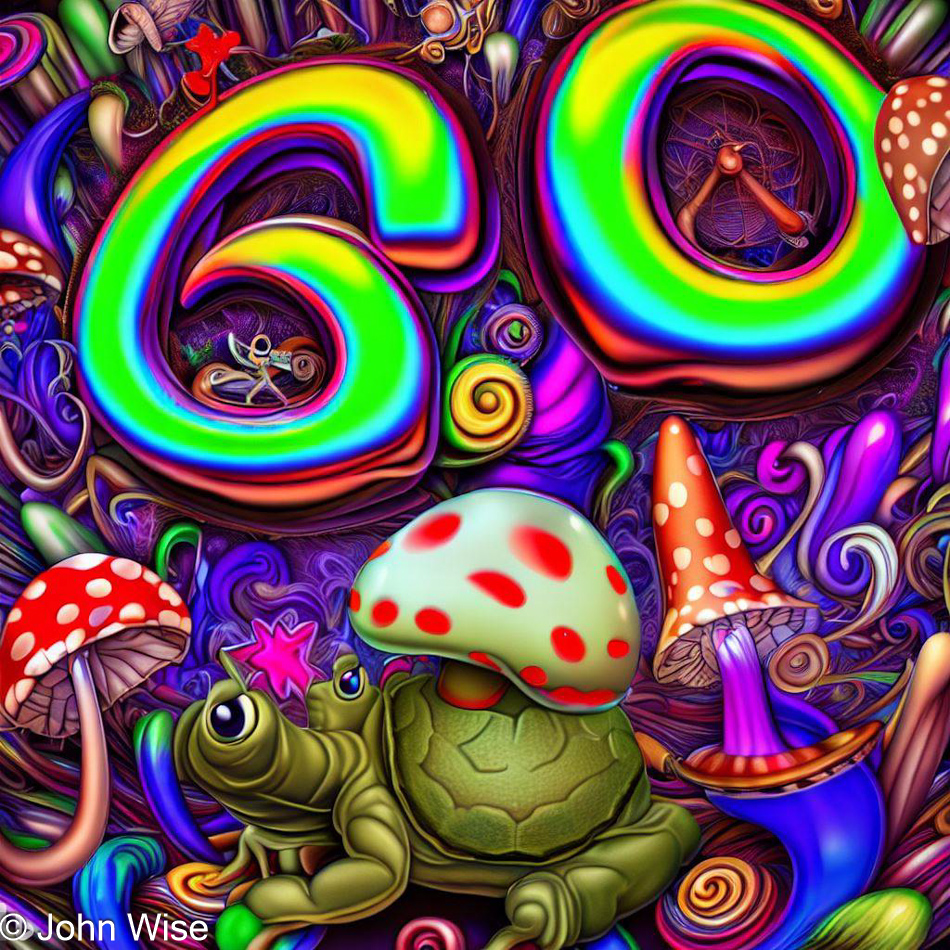
A child possesses what I may no longer be able to play with: dreams. The child’s dreams are ones of play and discovery – unless a careless parent instills fears of bogeymen and other monsters. So, while most of my dreams have migrated away from the chase after I turned off television and stories of mayhem, they are still possessed of anxieties about forgetting things in places visited or being in old haunts where order is threatened by chaos and uncertainty. Innocence cannot be recovered, which then has me thinking of how many children have that precious time stolen from them due to anger, immaturity, dependence, abuse, and the lack of knowledge that benights a large part of the population bringing children into this world.
When the dream of becoming, acting, traveling, working, and adventure no longer exists, what replaces the dream?
Most recently, it has started looking like it might be the world of artificial intelligence that intrudes into and alters our dreams. While I’m well aware that AI is a progression in the lineage of human advancements in language, writing, printing, electronic communication, and internet technologies, I’m still laid aghast at the profound nature of just what it is that I’m encountering. I’d certainly not be surprised if it were proven to me that what I’m seeing is nothing more than a parlor trick that the old guy fell for, but from my vantage point, I’ve watched fire give way to the wheel, to written language, and blam, all of sudden here is artificial intelligence. If you were born in the last half dozen years, you will likely be growing up with a superintelligence that will have you wondering why people ever listened to other people.
To this point in history, humanity has lived “without mastery,” we have simply been in our own kind of oblivion where we are at the center of everything yet intuitively somehow know we are no one. The earth and its various species appear to be suffering from our carelessness as we failed to master the knowledge that we are part of the earth’s life, not separate from it. Artificial Intelligence might be the thing that comes between us and the rest of life with the potential for AGI (Artificial General Intelligence) to demonstrate in human terms our failings toward the planet and its diversity of life forms, which could also imply that our religions have failed us.
This is a great advancement to me as I feel incredibly isolated by the limited number of others with whom I can communicate on a daily basis and who are genuinely interested in broad knowledge. While common bloviation is de rigueur among the least educated (including those with better educations who’ve adopted the white-victimization position), I sense that the landscape regarding humans around me is one of desolation. Mind you, I understand that small talk must take place for social cohesion, but what nowadays counts as the subject matter of that conversation is one of absurdist turd-talk, maybe best exemplified by the South Park character Mr. Hankey, a talking piece of poo.
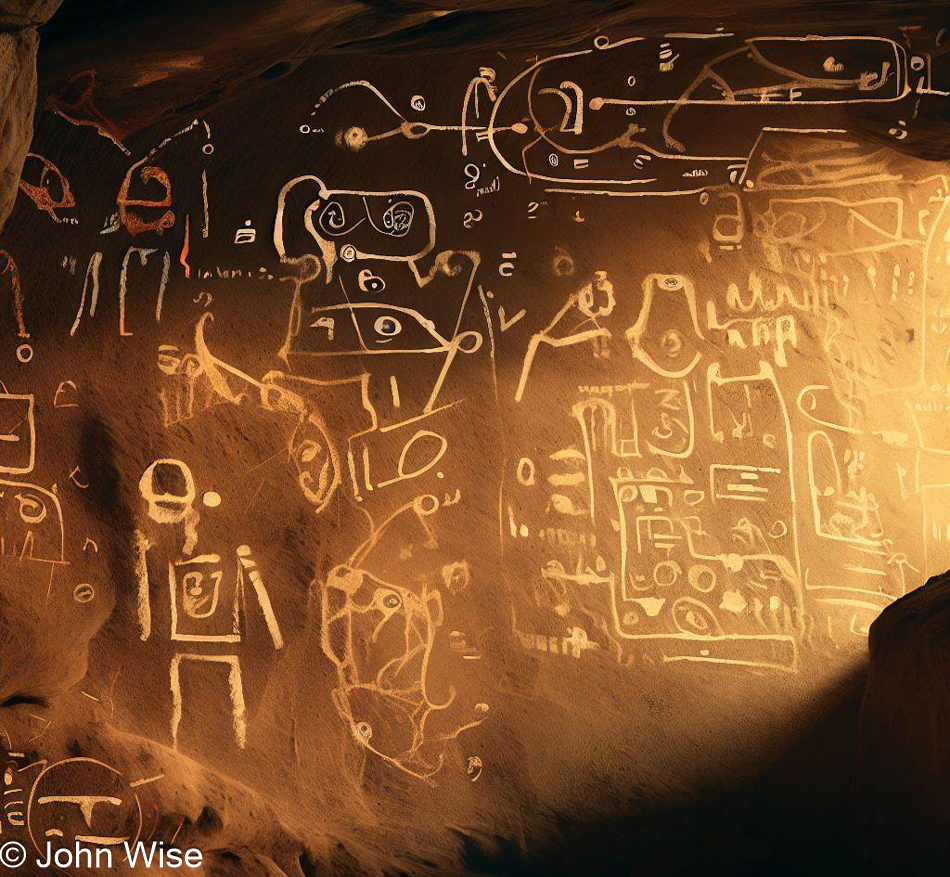
Humans and possibly Neanderthals seem to have been practicing exosomatic memory starting between 100,000 and 300,000 years ago, and from then until now, this has been the exclusive domain of us bipeds. Exosomatic memory is the recording of memories outside the brain; it’s why we create paintings and carvings, write music, and create stories in books. This is undergoing a potential change, though, as machines are starting to offer us humans reflections of our culture through natural language prompts.
Think about it: we looked at the outside world and began to learn that we could label and refer to those things. It took 10s of thousands of years to build a body of knowledge that has brought us this far. We have now fed a large part of that into the machines, and while it requires us to prompt it, it is able to respond with a complexity of language and imagery that in some ways should seem as impossible as embuing a tree with those capabilities, meaning it is outside the realm of the possible, but here we are.
AI may turn out to merely be a chimera, a flash in the pan of illusion that goes nowhere aside from a dead end of technology, but we do not know yet for certain what it means, and we have never proven to be good interpreters of the trajectory of the future.
And so we’ll just go on taking stuff out of our heads and putting it out there for others to consume, even when what we share is dropping from the cauldrons of utter stupidity we call modern minds.
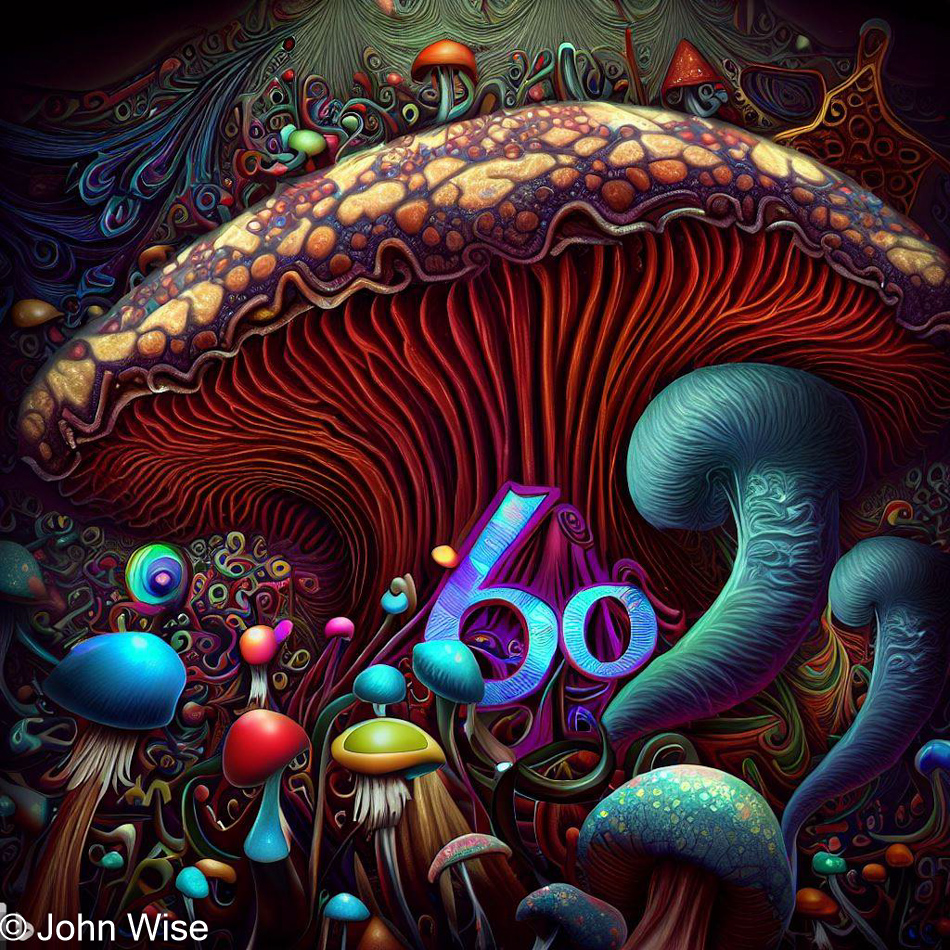
One might say that as I enter this upgrade series of 6.0 and beyond, it comes with wisdom from the machine that will, if I’m so lucky, also enhance my basic operating system. Granted, I will have to face it without fear, which won’t be easily said by the rest of those of us who arrived on the border of Generation X and the Baby Boomers and are now generally afraid of the sea change that is about to stare them down.
